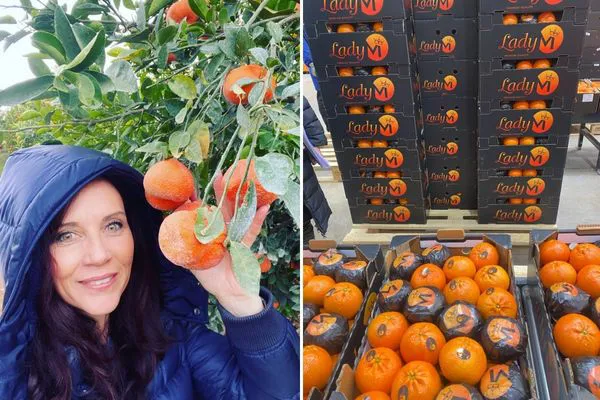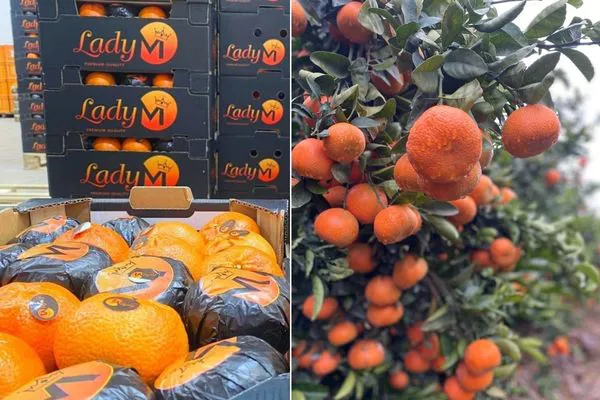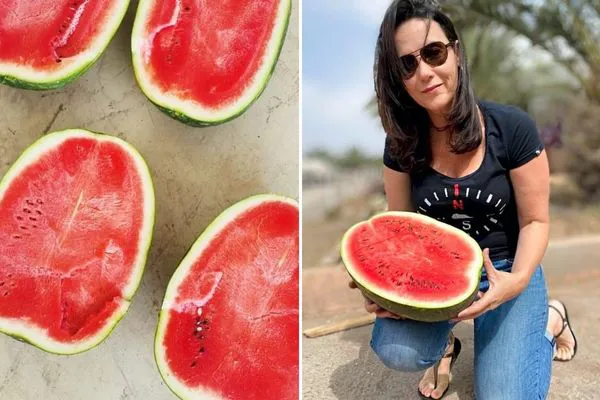Moroccan citrus exports have largely decreased this season due to various factors, of which drought is the most imposing. This decrease has reached up to 50% for most cultivars, and up to 40% for some varieties such as Nadorcott. However, the picture is not entirely bleak, according to Stephanie de Wit, founder of the Moroccan exporting company Agri Bianco.

Stephanie explains: "Morocco is not the only country to have suffered a decline in citrus volumes. Spain has also faced this problem, even though it is a major citrus producer. Europe’s need for citrus fruits was high and maintained a good demand for Moroccan citrus this season. In general, demand for Moroccan citrus has been strong, except for the United States, which has had sufficient volumes of its own production. Thanks to this we have had good prices despite the decrease in quantities."
"We are adapting to the decrease in volumes, and we are doing quite well so far. We have adjusted our export programs, so we still have weeks of shipping while most exporters have exhausted their volumes. This allowed us to maintain adequate prices."

The recent rains in February have boosted Moroccan agriculture and given hope to growers, adds Stephanie, "I think there are still great opportunities for the sector to develop. Moroccan citrus is still to be discovered on the major international markets and has major strengths such as quality and geographical proximity, and the February rains brings new hope."
If the weather conditions have been bad for Moroccan citrus, they have been favorable to Egyptian citrus. Stephanie comments: "Egypt has very good producers and the weather conditions have been favorable for them. It is difficult to compete with Egyptian producers who benefit from low production costs. But there is a downside to this, large quantities mean lower prices for them too, and that can't last forever. I think Morocco and Egypt can coexist in the market and so far, we have done quite well because in the end of the day it about producing quality and putting in the hard work."
To compensate for the drop in citrus volumes, Stephanie diversified her range of products: "We export other seasonal products such as watermelon, peppers, and pomegranates. For our entire range, we carefully select our producers based on quality and ethical criteria. We have long-standing partnerships with producers in Agadir, Marrakech, Beni Mellal, and Sidi Slimane, all regions renowned for their excellence and agricultural know-how."

"We are currently preparing our watermelon calendars, which will be available in two weeks", adds Stéphanie, "but citrus remains our key product with sustainable volumes that will grow with each year, exported worldwide, to Europe, UK, India, Middle East, Asia, Canada and the United States."
Originally from South Africa, Stephanie has "made Morocco her home". She concludes: "I came as a commercial manager for a citrus exporter. I then started my own export company a few years ago and created the "Lady M" brand. Soon I hope to be a grower in Morocco myself."
For more information:
Stephanie de Wit
Agri Bianco
Tel: +212 676-688886
Email: stephanie@agribianco.com
www.agribianco.com
linkedin.com/company/agri-bianco
instagram.com/agribianco
